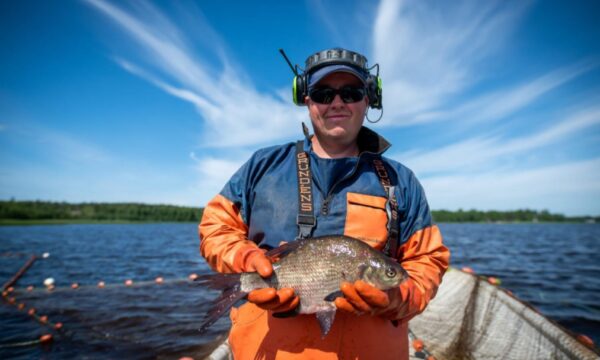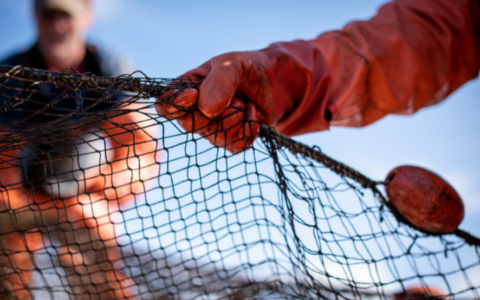01.12.2021 | Case story
The Baltic Fish project introduces a wide variety of sustainable fish products to Sweden and Åland markets.
Sustainable fish management in Sweden and Åland
Sustainable fish stock management of specific undervalued fish such as cyprinid species is an effective and ecologically sustainable method of reducing eutrophication of the Baltic Sea while increasing the range of climate-friendly products on offer to consumers.
Cyprinid fish, such as bream, roach and ide, are healthy, tasty and found in abundance in the Baltic Sea, but the tradition of eating them has been lost in many Baltic countries. The Baltic Fish project, led by the John Nurminen Foundation, has increased the interest in Cyprinid fish in Sweden and Åland and combined the removal of nutrients from the Baltic Sea with local food production. The project, co-financed by the Baltic Sea Action Plan Fund, was carried out by Race For The Baltic, Guldhaven Pelagiska, Rädda Lumparn, Ålands Fiskarförbund and the John Nurminen Foundation.
Working closely with local authorities, fishermen and researchers, the project was intended to create rules for sustainable fish stock management of cyprinid fish by creating a market-based production chain. Another ambition for the project was to introduce bream products to Swedish and Åland kitchens.
The fishing activities carried out during the project created a number of employment opportunities and removed about 400 kg of phosphorus from the sea, with 52 tonnes of cyprinids fished in Sweden and 2 tonnes in Åland.
The BSAP Fund continues to look for interesting and innovative solutions benefitting the Baltic Sea, with a call for proposals open until mid-December 2021. Eligible project activities can include, but are not limited to fighting eutrophication, measures to address pollution by hazardous substances, or measures to reduce marine litter
Baltic Sea climate-friendly products
Cyprinids are not only rich in protein, healthy and delicious, but they are also extremely low in emissions. The carbon footprint of minced bream is 0.5 kg CO2 equivalent per 1 kg of bream. The new products made with these fish, such as bream burgers, minced bream and fish patties, have seen excellent acceptance across all age groups in Swedish municipal kitchens, in schools and at summer events in Åland.
The project partner Race For The Baltic launched the website braxen.nu to raise awareness among consumers, restaurant managers and chefs about these healthy food options that have a positive impact on the Baltic Sea environment. With easy fish recipes and products made from bream or ide, consumers can get inspiration on how to serve these products in an original way.


Grants from the Baltic Sea Action Plan Fund
The Baltic Fish project received a grant from the Baltic Sea Action Plan from 2019 to September 2021 to address key challenges facing the Baltic Sea, such as eutrophication.
“The BSAP Fund continues to look for interesting and innovative solutions benefitting the Baltic Sea, with a call for proposals open until mid-December 2021. Eligible project activities can include, but are not limited to fighting eutrophication, measures to address pollution by hazardous substances, or measures to reduce marine litter”, says Dennis Hamro-Drotz, Senior Investment Manager, Nefco.
Although the project has been completed, work to build a permanent, long-term, sustainable cyprinid fishing industry along the coast of the Baltic Sea will continue.
Read the story on John Nurminen Foundation’s website.
Photos: Marie Sparréus